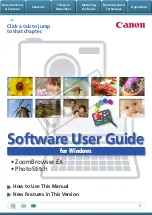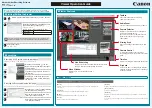
S e n d c o m m e n t s t o n x 5 0 0 0 - d o c f e e d b a c k @ c i s c o . c o m
6-56
Cisco Nexus 5000 Series Command Reference
OL-16599-01
Chapter 6 Security Commands
permit (IPv4)
precedence
precedence
(Optional) Specifies that the rule matches only packets that have an IP
Precedence field with the value specified by the
precedence
argument. The
precedence
argument can be a number or a keyword as follows:
•
0–7—Decimal equivalent of the 3 bits of the IP Precedence field. For
example, if you specify 3, the rule matches only packets that have the
following bits in the DSCP field: 011.
•
critical
—Precedence 5 (101)
•
flash
—Precedence 3 (011)
•
flash-override
—Precedence 4 (100)
•
immediate
—Precedence 2 (010)
•
internet
—Precedence 6 (110)
•
network
—Precedence 7 (111)
•
priority
—Precedence 1 (001)
•
routine
—Precedence 0 (000)
fragments
(Optional) Specifies that the rule matches only those packets that are
noninitial fragments. You cannot specify this keyword in the same rule that
you specify Layer 4 options, such as a TCP port number, because the
information that the switch requires to evaluate those options is contained
only in initial fragments.
log
(Optional) Specifies that the switch generates an informational logging
message about each packet that matches the rule. The message includes the
following information:
•
ACL name
•
Whether the packet was permitted or denied
•
Whether the protocol was TCP, UDP, ICMP or a number
•
Source and destination addresses and, if applicable, source and
destination port numbers
time-range
time-range-name
(Optional) Specifies the time range that applies to this rule. You can
configure a time range by using the
time-range
command.
icmp-message
(Optional; IGMP only) Rule matches only packets of the specified ICMP
message type. This argument can be an integer from 0 to 255 or one of the
keywords listed under “ICMP Message Types” in the “Usage Guidelines”
section.
igmp-message
(Optional; IGMP only) Rule matches only packets of the specified IGMP
message type. The
igmp-message
argument can be the IGMP message
number, which is an integer from 0 to 15. It can also be one of the following
keywords:
•
dvmrp
—Distance Vector Multicast Routing Protocol
•
host-query
—Host query
•
host-report
—Host report
•
pim
—Protocol Independent Multicast
•
trace
—Multicast trace
















































